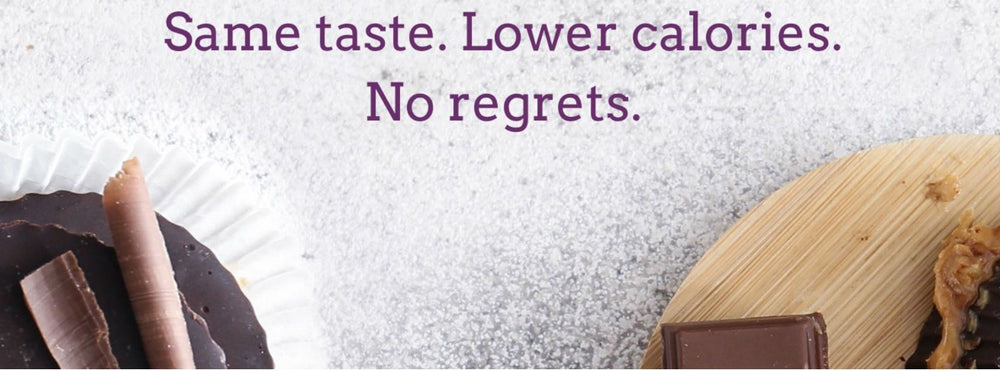New FDA ruling helps food companies disguise sweeteners

As sugar alternatives have gained in popularity in recent years, evidence keeps piling up that these substitutes may be just as bad for you as the real thing: the most recent study suggests that diet drinks sweetened with sugar substitutes are linked with cardiovascular disease at the same rate as sugar-sweetened beverages. And we already know that diet soda is no better at warding off diabetes compared to its regular counterpart. That "no regrets" thing might just be a bit overstated.
Thank goodness artificial sweeteners have to be listed under Total Sugar and Added Sugar on nutrition labels!
Nope - that doesn't happen. Had you going for a minute...
Artificial sweeteners are NOT accounted for in any sugar category, regardless of their health effects. In fact, and true to form, the FDA just confirmed that it will not list allulose -- the latest newcomer within the low calorie sweetener market -- in either of these categories. It's never counted aspartame, saccharin, sucralose, or steviol glycosides (stevia) either -- much to the sugar industry’s dismay.
Allulose is known as a “rare sugar” because it’s found in nature, but in very small quantities. This monosaccharide is present in figs, raisins and jackfruit - and is similar to table sugar in terms of what it looks like in a package and in the quantity you’d use to bake a cake, but it does not raise blood sugar and is very low in calories. Sounds almost too good to be true! No wonder it makes for an attractive companion to other non-sugar sweeteners in certain products.
You’ve probably seen items that contain allulose in co-ops or on the “natural foods” shelves of your grocery store: It can be found in “natural” cola such as Virgil’s, ice cream alternatives and products labeled “keto friendly.”
Indeed, the craze over the ketogenic diet helped propel allulose to prominence: Because the sweetener doesn’t have as many calories per gram as regular sugar, it doesn’t “count” as the type of carb that keto dieters steer clear of.
However, no sugar substitutes have been proven to be healthier than sugar in scientific studies, and it’s unlikely that allulose will be any different. After all, in nature allulose is a RARE sugar – meaning from an evolutionary perspective we are wired to encounter it rarely and NOT eat massive quantities of it!
But, even if it turns out that an ingredient like allulose is not as unhealthy as sugar, do you know what would be much better for you -- and wouldn’t require any labels or scientific study? Eating some raisins or an actual fig!
In the meantime, the FDA has left the door open for possible “amendments to the nutrition labeling rules for allulose and other sugars that are metabolized differently than traditional sugars,” calling for public input. So here’s my input: Stop with the sweetener games – the ingredient splitting, the turning of a blind eye to non-sugar based additives! Insist that all added sweeteners (whether nutritive or not) are listed together on the ingredient panel as a single ingredient category. That would help to truly highlight how much sweet you’re really consuming.
Then maybe you wouldn’t need my guide to navigating food labels (but I’m not holding my breath, so here it is.)

Tested & Proven Results.
- Cardiologist formulated
- Supported by over 500 publications
- Clinically-proven, in a double-blind randomized trial with Mayo Clinic and The University of Manitoba
80% of participants lowered their cholesterol in just 30 days. With just two servings per day, Step One Foods offers a proven-effective way to naturally lower LDL (bad) cholesterol.
Get heart health tips and articles like this, delivered right to your email.
New articles every week.
You may also like...

Fiber Supplements vs. Fiber from Food – Is There a Difference?

You don’t need to avoid foods with cholesterol…except for these



